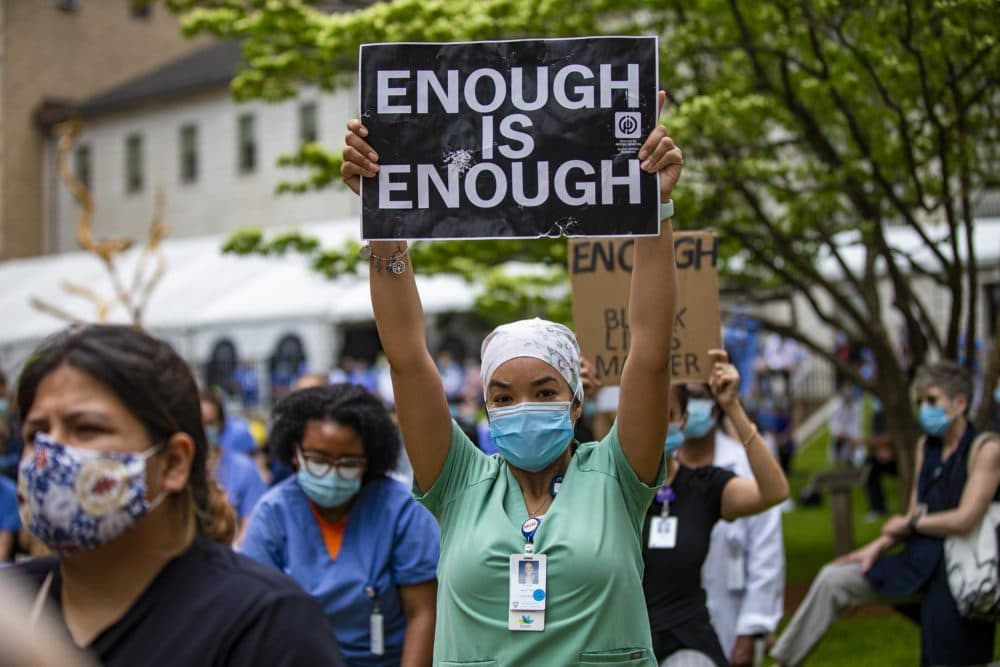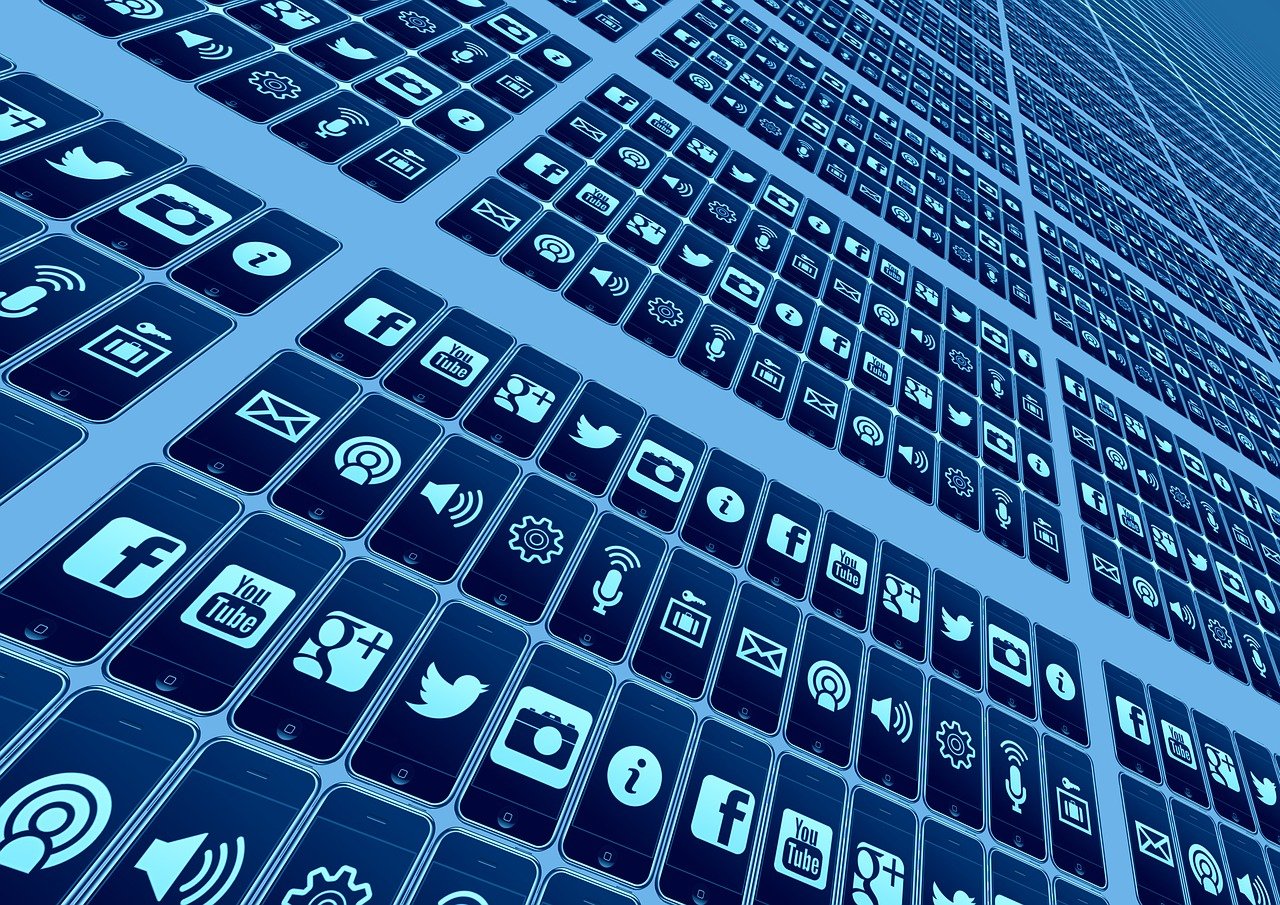 2020 emerged as a year that defied expectations, reshaping the very fabric of global society, with America standing at the epicenter of transformation. In this pivotal time, seismic shifts altered the way we navigate and perceive the world around us. Prominent among these transformative forces were the unprecedented swells of social movements that swept across the nation, leaving an indelible mark on the collective consciousness. From the impassioned outcry of the Black Lives Matter (BLM) movement, ignited and propelled by the tragic loss of George Floyd, to the disruptive upheaval wrought by the COVID-19 pandemic, which abruptly halted conventional modes of human interaction worldwide, and the internal turmoil echoing within American political spheres, each thread intricately interwove with the others, creating a tapestry of societal change. This blog endeavors to delve into the interconnectedness of these pivotal events, dissecting their profound impact on the American landscape and the broader spectrum of global societal shifts.
2020 emerged as a year that defied expectations, reshaping the very fabric of global society, with America standing at the epicenter of transformation. In this pivotal time, seismic shifts altered the way we navigate and perceive the world around us. Prominent among these transformative forces were the unprecedented swells of social movements that swept across the nation, leaving an indelible mark on the collective consciousness. From the impassioned outcry of the Black Lives Matter (BLM) movement, ignited and propelled by the tragic loss of George Floyd, to the disruptive upheaval wrought by the COVID-19 pandemic, which abruptly halted conventional modes of human interaction worldwide, and the internal turmoil echoing within American political spheres, each thread intricately interwove with the others, creating a tapestry of societal change. This blog endeavors to delve into the interconnectedness of these pivotal events, dissecting their profound impact on the American landscape and the broader spectrum of global societal shifts.
 In the tapestry of societal transformation within America during 2020, the Black Lives Matter (BLM) movement emerged as a defining force. As the nation grappled with sweeping lockdowns, individuals found themselves navigating a novel existence characterized by social isolation and confinement indoors. This shift ushered in a surplus of free time, juxtaposed against a pervasive sense of disconnection from life’s purpose, which resulted in generalized anxiety for many individuals. Although the roots of the BLM movement predated the onset of the COVID-19 pandemic in the spring of 2020, the ensuing lockdowns catalyzed a multifaceted impact on its trajectory. The abundance of unoccupied time seemingly served as a catalyst, drawing more individuals into the fold of the BLM movement, and fostering support from the confines of their homes. Individuals who supported the BLM movement fought against racism, or the belief that certain racial or ethnic groups are inferior to one’s own, and prejudice, or the set of negative attitudes, beliefs, and judgments about whole categories of people, present in many American social systems. While interpersonal interaction was limited by the COVID-19 pandemic, many public protests, or public expressions of an objection toward an action or idea, were held around the nation as a way for people to activate their time and support the movement for greater social equity and equality. Simultaneously, the period of lockdowns emboldened detractors of the movement, amplifying their dissent and prompting more forceful opposition. The enforced isolation further accelerated reliance on social media platforms as conduits for connectivity and information dissemination, facilitating the dissemination of content shedding light on incidents of unjust and violent conduct by American law enforcement. This confluence of factors propelled the BLM movement into the forefront of the 2020 American sociopolitical landscape, a position it continues to steadfastly maintain, championing the cause of equality and equity for all individuals.
In the tapestry of societal transformation within America during 2020, the Black Lives Matter (BLM) movement emerged as a defining force. As the nation grappled with sweeping lockdowns, individuals found themselves navigating a novel existence characterized by social isolation and confinement indoors. This shift ushered in a surplus of free time, juxtaposed against a pervasive sense of disconnection from life’s purpose, which resulted in generalized anxiety for many individuals. Although the roots of the BLM movement predated the onset of the COVID-19 pandemic in the spring of 2020, the ensuing lockdowns catalyzed a multifaceted impact on its trajectory. The abundance of unoccupied time seemingly served as a catalyst, drawing more individuals into the fold of the BLM movement, and fostering support from the confines of their homes. Individuals who supported the BLM movement fought against racism, or the belief that certain racial or ethnic groups are inferior to one’s own, and prejudice, or the set of negative attitudes, beliefs, and judgments about whole categories of people, present in many American social systems. While interpersonal interaction was limited by the COVID-19 pandemic, many public protests, or public expressions of an objection toward an action or idea, were held around the nation as a way for people to activate their time and support the movement for greater social equity and equality. Simultaneously, the period of lockdowns emboldened detractors of the movement, amplifying their dissent and prompting more forceful opposition. The enforced isolation further accelerated reliance on social media platforms as conduits for connectivity and information dissemination, facilitating the dissemination of content shedding light on incidents of unjust and violent conduct by American law enforcement. This confluence of factors propelled the BLM movement into the forefront of the 2020 American sociopolitical landscape, a position it continues to steadfastly maintain, championing the cause of equality and equity for all individuals.
 Another significant catalyst for social change in America during 2020 was the tumultuous internal discourse surrounding the impending occupancy of the Presidential seat for the 2021-2024 term. The Biden versus Trump election, etched into history, epitomized the intricate intersections between political realms and the fabric of everyday life for Americans. The populace, fatigued from the pandemic’s strain, rallied vociferously, passionately advocating for their favored candidate, which each party believed would uphold democracy for American society. This fervor escalated, intensifying clashes between factions, each staunchly championing their candidate. Debates surrounding Biden’s mental acuity and physical well-being contrasted sharply with persistent critiques questioning Trump’s moral fortitude and ethical standing. Concurrently, the schism between the Democratic and Republican parties deepened, eroding the terrain for consensus and collaboration. Extremist elements from both ends of the political spectrum escalated their activities, culminating in alarming events such as the January 6th insurrection in Washington, D.C., and allegations of electoral malpractice. Presently, the chasm between the Republican and Democratic parties looms large, resembling an unbridgeable divide, yet within this abyss, there flickers a glimmer of hope. Despite the profound polarization, a collective yearning persists within both parties for reunification, an aspiration to reconstruct a societal fabric fostering in-person interactions reminiscent of the pre-pandemic world.
Another significant catalyst for social change in America during 2020 was the tumultuous internal discourse surrounding the impending occupancy of the Presidential seat for the 2021-2024 term. The Biden versus Trump election, etched into history, epitomized the intricate intersections between political realms and the fabric of everyday life for Americans. The populace, fatigued from the pandemic’s strain, rallied vociferously, passionately advocating for their favored candidate, which each party believed would uphold democracy for American society. This fervor escalated, intensifying clashes between factions, each staunchly championing their candidate. Debates surrounding Biden’s mental acuity and physical well-being contrasted sharply with persistent critiques questioning Trump’s moral fortitude and ethical standing. Concurrently, the schism between the Democratic and Republican parties deepened, eroding the terrain for consensus and collaboration. Extremist elements from both ends of the political spectrum escalated their activities, culminating in alarming events such as the January 6th insurrection in Washington, D.C., and allegations of electoral malpractice. Presently, the chasm between the Republican and Democratic parties looms large, resembling an unbridgeable divide, yet within this abyss, there flickers a glimmer of hope. Despite the profound polarization, a collective yearning persists within both parties for reunification, an aspiration to reconstruct a societal fabric fostering in-person interactions reminiscent of the pre-pandemic world.
 Central to the tapestry of social change in America during 2020 was the pervasive influence of the COVID-19 pandemic, serving as the common thread between the upheavals witnessed. A pandemic is a worldwide disease outbreak. The advent of the COVID-19 virus precipitated a rapid change in the operational landscape of not only global society but particularly American society across every stratum. The arrival of an unknown and not readily treatable disease, or a disorder of structure or function in a human, animal, and/or plant, brought additional existential worry to American citizens and the rest of the global society. The pandemic wrought a profound disruption, pausing the regular cadence of life and inflicting setbacks and impediments across economic and societal domains. Supply chains strained to meet the demands of a suddenly remote-dependent world, resulting in protracted shortages and delays in the availability of essential medications and goods. In the wake of the pandemic’s fallout, a disconcerting wave of xenophobia surfaced, sowing seeds of animosity toward other cultures and societies, notably directed at Chinese society. The confluence of lockdowns and pandemic-induced effects continued to cast a heavy pall over the populace, exacerbating tensions and fostering prejudiced sentiments among the general population.
Central to the tapestry of social change in America during 2020 was the pervasive influence of the COVID-19 pandemic, serving as the common thread between the upheavals witnessed. A pandemic is a worldwide disease outbreak. The advent of the COVID-19 virus precipitated a rapid change in the operational landscape of not only global society but particularly American society across every stratum. The arrival of an unknown and not readily treatable disease, or a disorder of structure or function in a human, animal, and/or plant, brought additional existential worry to American citizens and the rest of the global society. The pandemic wrought a profound disruption, pausing the regular cadence of life and inflicting setbacks and impediments across economic and societal domains. Supply chains strained to meet the demands of a suddenly remote-dependent world, resulting in protracted shortages and delays in the availability of essential medications and goods. In the wake of the pandemic’s fallout, a disconcerting wave of xenophobia surfaced, sowing seeds of animosity toward other cultures and societies, notably directed at Chinese society. The confluence of lockdowns and pandemic-induced effects continued to cast a heavy pall over the populace, exacerbating tensions and fostering prejudiced sentiments among the general population.
In the crucible of 2020, America stood witness to an extraordinary confluence of transformative forces, each leaving an indelible mark on the societal canvas. The intersectionality of the Black Lives Matter movement, the electoral upheaval, and the seismic reverberations of the COVID-19 pandemic redefined the contours of American society. These shifts not only altered the sociopolitical landscape but also penetrated the fabric of daily life, prompting introspection and adaptation on unprecedented scales. As we navigate the aftermath, echoes of resilience and hope resonate. The lessons gleaned from the trials of 2020 beckon us toward a future that hinges upon unity, empathy, and a collective determination to forge a society that embraces diversity and navigates challenges with unwavering solidarity. Beyond the divides and tumultuous chapters, there exists an unwavering resolve to rekindle the essence of human connection and rebuild a society founded on equity, resilience, and shared humanity.
Borlay is a guest blogger at UITAC Publishing. UITAC’s mission is to provide high-quality, affordable, and socially responsible online course materials.
Images used in this blog:
- Photo by cottonbro studio is licensed by Pexels. This image has not been altered.
- Photo by Anete Lusina is licensed by Pexels. This image has not been altered.
- Photo by Brett Sayles is licensed by Pexels. This image has not been altered.
- Photo by Anna Shvets is licensed by Pexels. This image has not been altered.




